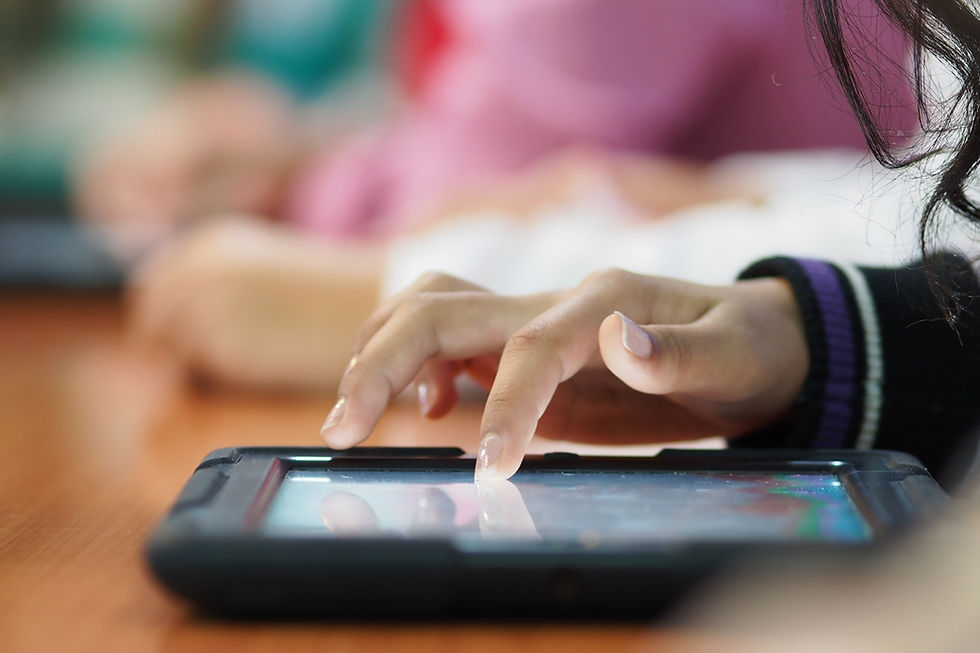Keeping Developmentally Delayed Kiddos Healthy During Flu Season
- From Delays to Diagnosis
- Nov 26, 2021
- 3 min read
Updated: Oct 25, 2022

For a developmentally delayed child, illnesses can be particularly challenging. When children are delayed, illnesses can set them back even further because of missed therapy sessions and opportunities to learn new skills.
We’ve had our fair share of illnesses, even with a pandemic baby who was kept mostly at home. This fall, had to schedule two cataract removal surgeries or our kiddo, and flu season made keeping her healthy especially difficult. She kept catching colds, and her anesthesia team had to postpone her surgery, three times. We decided to initiate a self-imposed quarantine to keep our little one healthy enough to undergo anesthesia for her surgeries. Going back to virtual therapies and temporality canceling in-clinic community therapies wasn’t easy, but it sure helped to have her early intervention program at-home therapies!
When flu season hits, here are our go-to's (these, of course, would also work with neurotypical kiddos, but a household with a child with developmental delays may want to be extra vigilant because of the fragility of, and extra negative impact illnesses can have on, developmentally delayed children):
Bring out the Humidifiers. The second our heater kicks on for the first time of the season, we start up the humidifiers (living room and bedrooms). According to the Mayo Clinic, healthy home humidity ranges are 30-50%. This level can be difficult to achieve in winter and especially in dryer climates. This humidity meter also has an air quality monitor (extra helpful if you live on the west coast for fire season) and other features.
Supplement with Vitamin D. As temperatures drop, we all tend to spend more time indoors. Less sunshine = less vitamin D. We give our kiddo Vitamin D drops (recommended by her developmental ped), and we take Vitamin D supplements as well. Check with your child's pediatrician before starting any new supplements.
Stock up on oranges and tangerines. We cut down on berries and stock up on oranges and tangerines in the fall/winter months. Vitamin C is crucial to keep the immune system strong and these fruits are in season right when winter hits, and they taste extra delicious!
Decrease indoor group activities. During our self-imposed quarantine, even though our daughter just started to take steps independently, we made the very tough decision to stop in-clinic therapies. We also stopped her music classes. These were the only two place she was going indoors, and we knew she was picking up illnesses from one or both of them. We asked her therapists to provide virtual visits for a month, and discontinue all indoor activities outside of the house. Her home therapies through the Early Intervention Program continued with masks and temperature checks. We’ve made it through one surgery with no illnesses and have one more to go!
Wash, wash, wash your hands. Most of us know to wash our hands before eating, but washing your hands upon entering your home is important too. Wash your hands and your kiddo’s hands every time you return home and before eating.
Set up a front door sanitary station. We started this during the pandemic. We ask visitors to wear masks and use sanitizer and/or wash their hands upon arrival. Having a little station with disposable masks, hand sanitizer, and Clorox wipes in the entry way helps a lot. Use Clorox wipes to disinfect surfaces your guests may have touched, like doorknobs, sink handles, toilet handles, and light switches.
Shoes off inside. If your child is delayed walking, and is still crawling, this is particularly important. Leave your germs at the door. We remove our shoes and ask visitors to as well (a habit started when living in a big city - once you start, you never go back). My feet tend to get sensitive on bare floors, so I wear Vionic slippers inside.
Stay healthy!



Comments